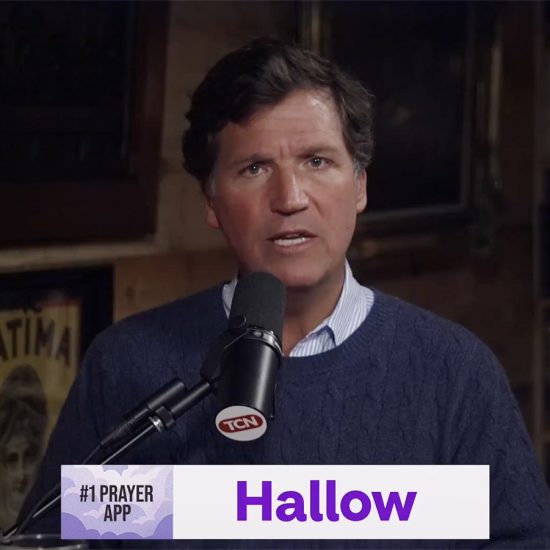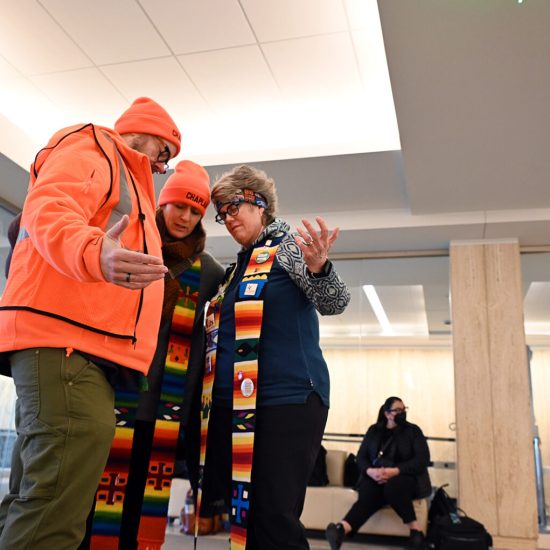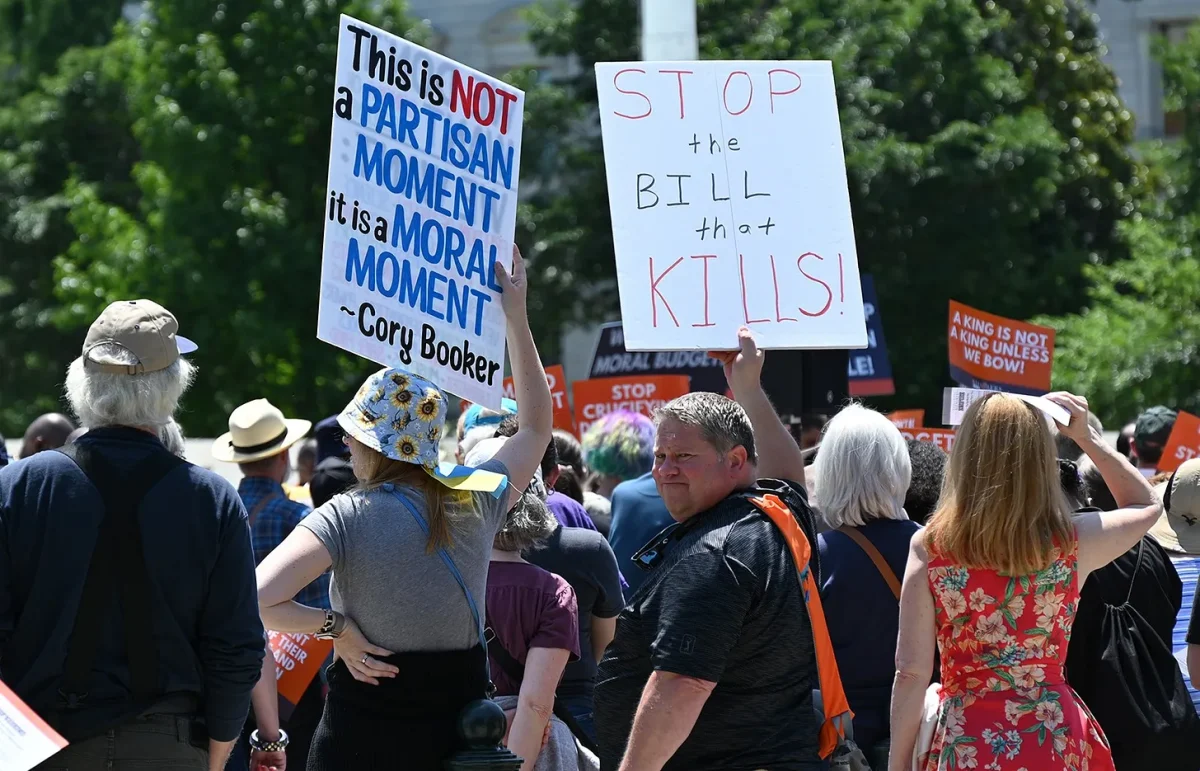
In the 1989 classic movie Dead Poets Society, Robin Williams played the part of a transformative English teacher at an elite Episcopalian all-male preparatory boarding school. As he explained a stanza from a poem to the not-yet-interested teenagers, teacher John Keating hit them with the meaning: “We are food for worms, lads. Because, believe it or not, each and every one of us in this room is one day going to stop breathing, turn cold, and die.”
But Keating didn’t offer this assessment to depress his students or to shrug off the need to make things better. Rather, he saw the truth that we will all die as a motivation to seize the day now.
“Carpe Diem. Seize the day boys. Make your lives extraordinary,” Williams as Keating urged.
U.S. Sen Joni Ernst recently preached a more nihilistic philosophy than the inspirational movie “captain.” Speaking at a town hall in Iowa on May 30, Ernst attempted to justify cutting federal Medicaid spending by more than $700 billion if President Donald Trump’s so-called “one big beautiful bill” is passed. Someone in the crowd shouted that people will die as a result because of the loss of health insurance coverage.
“Well, we all are going to die,” Ernst responded as the room erupted in groans. “So for heaven’s sakes. For heaven’s sakes, folks.”
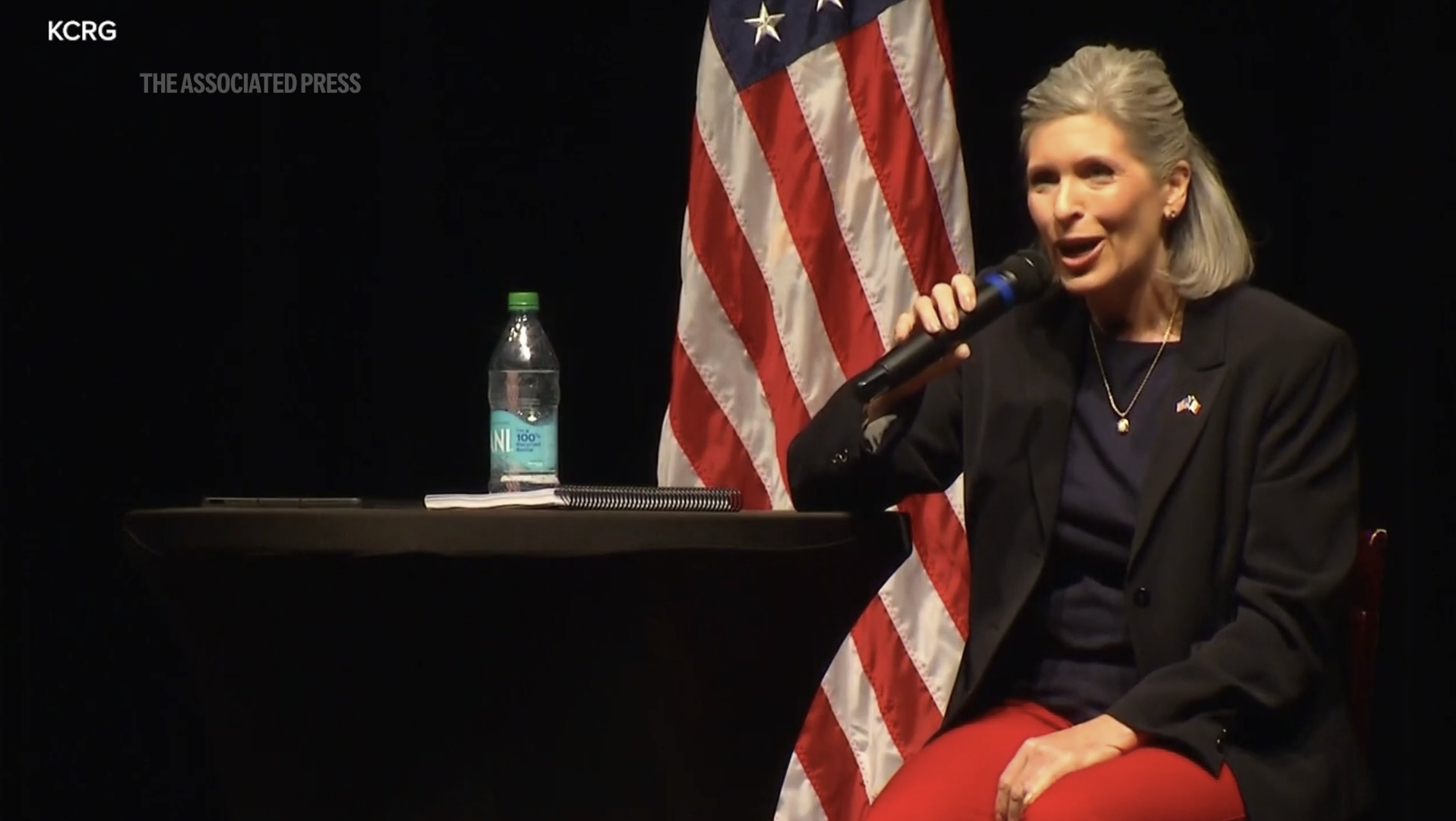
Screengrab as U.S. Sen. Joni Ernst speaks at a town hall in Parkersburg, Iowa, on May 30, 2025.
After her comment went viral and sparked criticism across the country, Ernst doubled down by filming an Instagram video in which she offered a mock apology as she walked through a cemetery. Claiming she wanted to “sincerely apologize,” Ernst spoke with an insincere tone as she mocked people for allegedly not thinking we will all die — as if that was what people thought was the problem with her statement.
“I made an incorrect assumption that everyone in the auditorium understood that, yes, we are all going to perish from this earth,” Ernst said with a fake pained expression. “So I apologize. And I’m really, really glad that I did not have to bring up the subject of the tooth fairy as well.”
Then, after mocking people for caring about the lives of others and lying about wanting to “sincerely apologize,” Ernst immediately pivoted to an evangelistic pitch like she was auditioning for a cheesy Christian movie role.
“But for those that would like to see eternal and everlasting life, I encourage you to embrace my Lord and Savior Jesus Christ,” said Ernst, who is part of an Evangelical Lutheran Church in America congregation.
The same basic fact — we will all stop breathing someday and die — but two significantly different responses. The fictional teacher in Dead Poets Society took this certainty as a motivation to make each day count. The somehow-real U.S. senator instead saw this reality as an excuse to justify policy changes that will result in many people dying sooner. And she wrapped that cruel message with an altar call. So this issue of A Public Witness takes a stroll through the proposed Medicaid cuts and the deadly theology preached by Ernst.
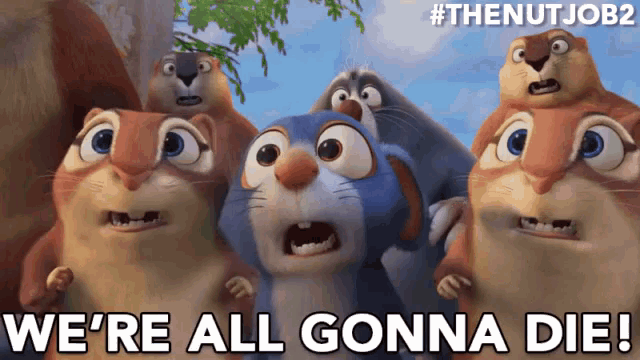
Cutting a Life-Saving Program
On May 22, the House of Representatives voted 215-214-1 to pass a budget reconciliation bill. Because Trump said he wanted “one big beautiful bill,” House Republicans nicknamed the legislation the “One Big Beautiful Bill Act.” With two Republicans voting against it and another voting present, the bill narrowly passed because of vacancies after three Democratic representatives in their 70s died in office this year. One more Democratic “no” vote would’ve prevented the bill’s passage.
In addition to extending tax cuts from Trump’s first term that were set to expire at the end of this year, the bill significantly cuts Medicaid, the Supplemental Nutrition Assistance Program, and clean-energy tax credits. But while cutting federal spending on programs that assist people, it would add another $150 billion in military spending and would increase Customs and Border Protection funds to facilitate deporting more people. It’s estimated the bill would increase the national debt by $2.4 trillion dollars while the cuts to Medicaid and the Affordable Care Act would increase the number of uninsured people by 10.9 million. Such a change means, as the person who shouted during Sen. Ernst’s town hall noted, people will die.

The rest of this piece is only available to paid subscribers of the Word&Way newsletter A Public Witness. Subscribe today to read this essay and all previous issues and receive future ones in your inbox.



